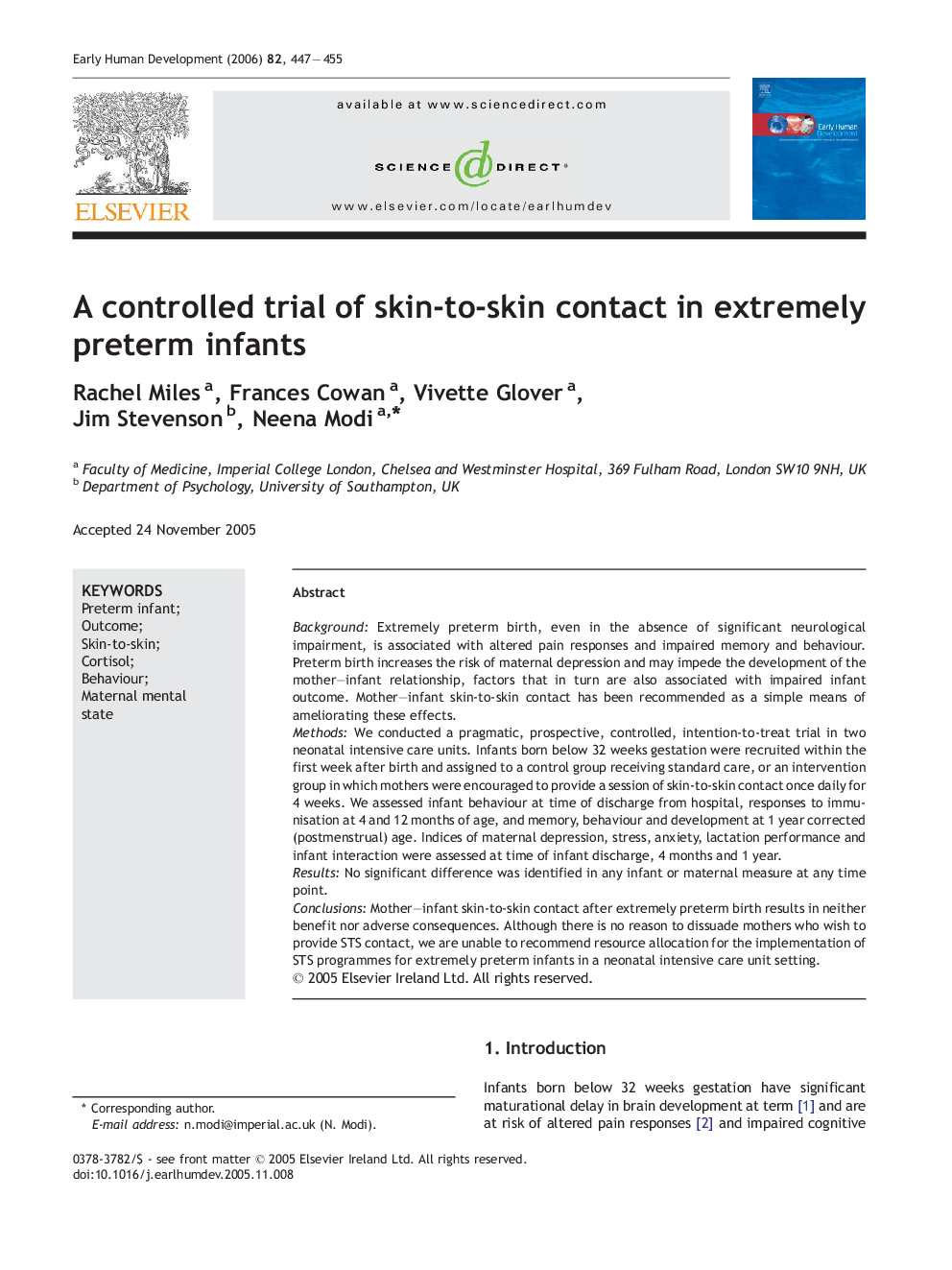| Article ID | Journal | Published Year | Pages | File Type |
|---|---|---|---|---|
| 3918224 | Early Human Development | 2006 | 9 Pages |
BackgroundExtremely preterm birth, even in the absence of significant neurological impairment, is associated with altered pain responses and impaired memory and behaviour. Preterm birth increases the risk of maternal depression and may impede the development of the mother–infant relationship, factors that in turn are also associated with impaired infant outcome. Mother–infant skin-to-skin contact has been recommended as a simple means of ameliorating these effects.MethodsWe conducted a pragmatic, prospective, controlled, intention-to-treat trial in two neonatal intensive care units. Infants born below 32 weeks gestation were recruited within the first week after birth and assigned to a control group receiving standard care, or an intervention group in which mothers were encouraged to provide a session of skin-to-skin contact once daily for 4 weeks. We assessed infant behaviour at time of discharge from hospital, responses to immunisation at 4 and 12 months of age, and memory, behaviour and development at 1 year corrected (postmenstrual) age. Indices of maternal depression, stress, anxiety, lactation performance and infant interaction were assessed at time of infant discharge, 4 months and 1 year.ResultsNo significant difference was identified in any infant or maternal measure at any time point.ConclusionsMother–infant skin-to-skin contact after extremely preterm birth results in neither benefit nor adverse consequences. Although there is no reason to dissuade mothers who wish to provide STS contact, we are unable to recommend resource allocation for the implementation of STS programmes for extremely preterm infants in a neonatal intensive care unit setting.
